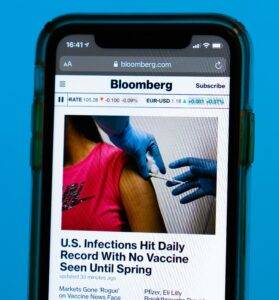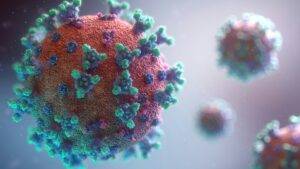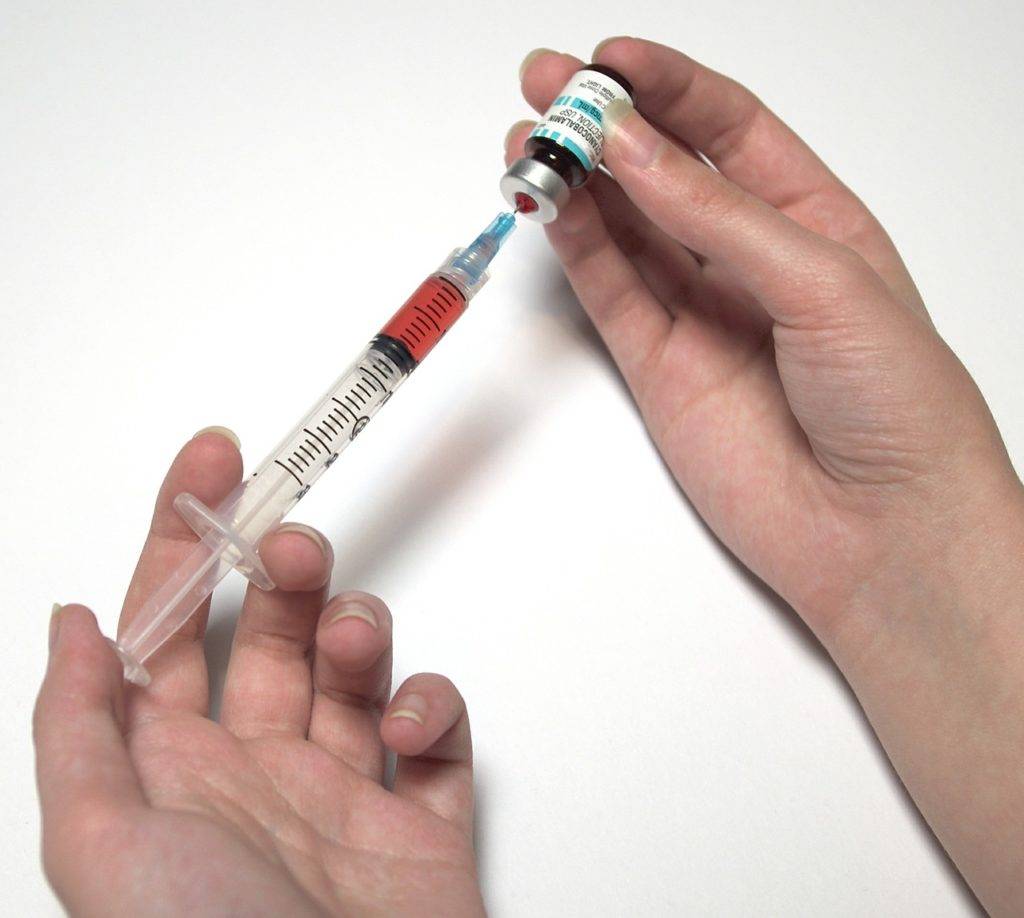Hepatitis B is a severe liver infection caused by the hepatitis B virus (HBV). This virus can lead to acute (short-term) and chronic (long-term) liver diseases. Chronic hepatitis B can result in liver damage, liver cancer, and even death. The virus spreads through contact with infectious body fluids, such as blood, semen, and vaginal fluids.
How Does Hepatitis B Affect Children?
Children are particularly vulnerable to this illness. If a child is infected at birth or early childhood, the likelihood of the infection becoming chronic is exceptionally high. Chronic cases in children lead to serious liver problems later in life, making early vaccination critical.
Global Burden of Hepatitis B
This illness has become a significant global health issue. According to the World Health Organization (WHO), over 257 million people globally live with this chronic infection.
This condition leads to about 887,000 deaths each year, primarily from liver cirrhosis and liver cancer. In regions where the infection is endemic, the burden is even higher, making vaccination programs essential for public health.
How is Hepatitis B Transmitted?
This infection is highly contagious and transmitted in several ways. The most common methods of transmission include:
- Mother-to-Child Transmission: Occurs during childbirth if the mother is infected.
- Direct Blood Contact: Sharing of needles, razors, or other sharp instruments that break the skin and transfer blood from one person to another.
- Sexual Contact: Unprotected sex with an infected person.
- Household Contact: Though less common, sharing personal items like razors, toothbrushes, or nail clippers spreads the virus if they come into contact with infected blood.
The Hepatitis B Vaccine: A Lifesaver
The vaccine is a safe and effective way to prevent HBV infection. It’s usually given as a series of three or four shots over six months. The vaccine stimulates the immune system to produce antibodies against the virus, providing long-lasting protection.
How Does the Vaccine Work?
The vaccine contains a protein from the virus called the surface antigen (HBsAg). This protein is not infectious but stimulates the body’s immune system to produce antibodies against HBV. Once vaccinated, if a person is exposed to the virus, their immune system can quickly recognize and fight it off, preventing infection.
Who Should Get the Vaccine?
The vaccine is recommended for everyone, including newborns. The Centers for Disease Control and Prevention (CDC) gives the vaccination schedule below. It’s also recommended for older children and adults who aren’t vaccinated, especially those at higher risk, such as healthcare workers and people with chronic liver disease.
Vaccine Schedule
The vaccine is typically given in a series of three or four shots:
- First Dose: At birth, within 24 hours.
- Second Dose: At 1-2 months of age.
- Third Dose: At 6-18 months of age.
In some cases, a four-dose schedule may be used, particularly for high-risk infants or if a combination of vaccines is used.
Why is the Hepatitis B Vaccine Important for Children?
- Prevents Chronic Infection: Administering the vaccine at birth significantly decreases the risk of chronic infection. This is particularly crucial for infants born to hepatitis B-positive mothers, as the vaccine can prevent these newborns from becoming chronic carriers of the virus.
- Reduces Liver Cancer Risk: By averting chronic infection, the vaccine diminishes the likelihood of liver cancer. Chronic infection is a major cause of liver cancer, so early vaccination serves as a potent measure of cancer prevention.
- Stops the Spread of the Virus: Children who receive the vaccine are less likely to transmit the virus to others. This helps curb the spread of the virus within the community, safeguarding those who may not be eligible for vaccination.
Key Health Benefits of the Hepatitis B Vaccine
1. Lifelong Protection
Once the vaccination series is completed, most people are protected for life. This is especially important for children, as it ensures they’re protected from the virus as they grow and become more exposed to potential sources of infection.
2. Safety and Efficacy
The vaccine is one of the safest vaccines available. It has been given to millions worldwide with an excellent safety record. Serious side effects are rare, and the benefits far outweigh the risks. The vaccine is also highly effective, with a success rate of about 95% in preventing infection in those who complete the series.
3. Preventing Mother-to-Child Transmission
Babies born to mothers who have the infection are at high risk of contracting the virus during childbirth. The vaccine, when given within 24 hours of birth, along with hepatitis B immunoglobulin (HBIG), can prevent this transmission. This is crucial in protecting newborns from becoming chronic carriers of the virus.
4. Reducing Healthcare Costs
Preventing the illness through vaccination reduces healthcare costs associated with treating chronic liver disease, liver cancer, and other complications of the infection. Through early vaccination in children saves money and resources in the long haul.
5. Promoting Public Health
Widespread vaccination helps achieve herd immunity, which means that even those who can’t be vaccinated, due to medical reasons, are protected because the spread of the virus is minimized. This public health benefit is essential in controlling and eventually eliminating the infection as a public health threat.
Understanding Hepatitis B: A Closer Look
The Science Behind Hepatitis B
This infection is caused by a virus that primarily attacks the liver. When someone gets infected with the hepatitis B virus (HBV), the virus travels to the liver, where it begins to replicate. The liver, an essential organ for detoxification and digestion, becomes inflamed as a response to the infection.
This inflammation leads to scarring (cirrhosis) and in severe cases, liver cancer. The virus is highly infectious, even more so than HIV, which makes vaccination incredibly important.
Chronic vs. Acute Hepatitis B
- Acute Hepatitis B: This is a short-term illness that occurs within the first six months after someone is exposed to the virus. It causes symptoms such as jaundice (yellowing of the skin and eyes), fatigue, nausea, vomiting, and abdominal pain. Most people recover without any long-term issues.
- Chronic Hepatitis B: This occurs when the virus remains in a person’s body for six months or longer. Chronic infection leads to serious health problems, including liver damage, cirrhosis, liver failure, and liver cancer. Infants and young children are more likely to develop if they become infected.
The Long-Term Impact of Hepatitis B Vaccination
1. Reducing Liver Cancer Rates
Chronic infection is a major risk factor for liver cancer, and by preventing chronic HBV infection, the vaccine indirectly reduces the incidence of this deadly cancer. Studies have shown that countries with high vaccination coverage have a significant decline in liver cancer cases.
2. Improving Quality of Life
By preventing chronic hepatitis B infection, the vaccine improves overall quality of life for individuals and families. Chronic infection leads to severe liver diseases, including cirrhosis and liver failure, which impact a person’s health and well-being. Vaccinated individuals are less likely to develop these complications, leading to healthier lives.
3. Economic Benefits
Treating chronic hepatitis B and its complications, such as liver cirrhosis and liver cancer, is costly. By preventing these conditions through vaccination, we can reduce healthcare expenditures and allocate resources more efficiently. This economic benefit extends to families who avoid the financial burden of managing chronic liver disease.
How to Ensure Your Child Gets the Hepatitis B Vaccine
- At Birth: The first dose of the hepatitis B vaccine should be given within 24 hours of birth. This is crucial in preventing mother-to-child transmission, especially if the mother is infected with hepatitis B. Parents should ensure their newborn receives this initial dose before leaving the hospital.
- Follow-Up Doses: The vaccination series continues with follow-up doses at 1-2 months and 6-18 months. It is essential to complete the entire series to ensure full protection. Parents should keep track of their child’s vaccination schedule and make appointments as needed.
- Catch-Up Vaccination: If a child misses any doses, catch-up vaccination is available. Parents should consult their pediatrician to complete the vaccination series and ensure their child is fully protected against hepatitis B.
Addressing Common Concerns
Is the Hepatitis B Vaccine Safe?
Yes, the hepatitis B vaccine is very safe. It has been extensively studied and monitored for safety. Most side effects are mild, such as soreness at the injection site or a slight fever. Severe reactions are rare.
Can the Vaccine Cause Hepatitis B?
No, the hepatitis B vaccine cannot cause hepatitis B. It contains only a small part of the virus, which isn’t infectious. This part stimulates the immune system to protect against the virus without causing the disease.
Why Should Newborns Get the Vaccine?
Newborns should get the hepatitis B vaccine because they’re at a higher risk of developing chronic hepatitis B if infected at birth. Vaccinating newborns ensures they are protected, reducing their risk of chronic infection and its associated complications.
Are There Any Side Effects?
Like any medical intervention, the hepatitis B vaccine causes side effects, but they’re generally mild and temporary. Common side effects include soreness at the injection site, mild fever, and fatigue. Serious side effects are rare and the benefits of vaccination far outweigh the risks.
Real-Life Success Stories
The Impact of Vaccination Programs
Countries with robust hepatitis B vaccination programs have dramatic decreases in new infections and related diseases. For example, in Taiwan, a national hepatitis B vaccination program led to a significant reduction in liver cancer rates among children.
Personal Stories
Consider the story of Maria, a mother who was diagnosed with hepatitis B during her pregnancy. Thanks to the hepatitis B vaccine, her baby was vaccinated at birth and didn’t contract the virus. Maria’s experience highlights the importance of vaccination in protecting individuals and families.
Stories from the Community
In communities where hepatitis B vaccination is widespread, numerous stories of families have been protected from the virus. For instance, in certain parts of Africa and Asia, where the prevalence of hepatitis B is high, vaccination programs have successfully reduced the incidence of chronic hepatitis B and its complications.
These success stories underscore the critical role of vaccination in public health.
Resources for Parents
- Talking to Your Pediatrician: Parents should feel comfortable discussing concerns or questions about the hepatitis B vaccine with their pediatrician. Healthcare providers can offer valuable information, address worries, and guide the vaccination schedule.
- Educational Materials: Numerous resources are available to help parents understand the importance of the hepatitis B vaccine. Websites like Omega Pediatrics provide comprehensive information about childhood vaccinations, including the hepatitis B vaccine. These resources help parents make informed decisions about their child’s health.
- Community Support: Joining parent groups or community organizations that advocate for childhood vaccinations can also be beneficial. These groups often provide support, share experiences, and offer practical advice on navigating the vaccination process.
Protect Our Future
The hepatitis B vaccine is a crucial tool in safeguarding children’s health. Its benefits extend beyond individual protection, contributing to broader public health goals. By vaccinating every child, we reduce the burden of hepatitis B, prevent serious liver diseases, and promote a healthier future for all.
For more information on childhood vaccinations and their importance, visit Omega Pediatrics and read about the benefits of timely immunizations.
- Why the Hepatitis B Vaccine is Crucial for Children: Essential Ages for Immunization
- The Essential Guide to Vaccines: What New Moms Need to Know
Vaccinating your child against hepatitis B is a powerful step towards ensuring their long-term health and well-being. Let’s protect our children and our communities by making sure every child gets the hepatitis B vaccine.







